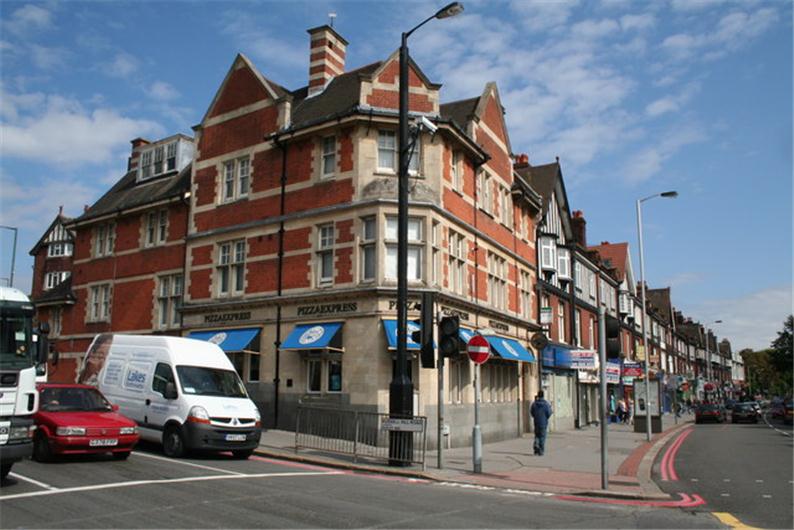Student Visa UK
The Student visa allows foreign students to study in the UK. To be eligible for the UK Student visa, you must have received a Confirmation of Acceptance for Studies, and have at least 70 points on the points-based immigration system.
Call us on +44 (0)333 414 9244 for immediate help & assistance with your situation. We’re here to help you in person, via the phone or online.
Read our 1001 reviews
Request a call back from our immigration experts
Benefits of Choosing IAS For Your Student Visa
If you are planning to study in the UK, then our professional and caring team can answer any questions or concerns you may have.
Our expert lawyers have experience in providing support to future students and helping build a successful application.
Our dedicated immigration lawyers provide our services through a comprehensive and personalised approach. Benefit from:

A personal immigration lawyer who can answer any queries that arise.



Support in completing all application forms correctly by a fully accredited lawyer.



Expert advice on how to avoid common mistakes that lead to a visa refusal.



A comprehensive document-checking service to ensure the right paperwork is submitted.
Services we Provide
UK Student Visa Application
If you want to study in the UK, you will need to apply for the Student Visa. In the post-Brexit environment, both EEA nationals and non-EEA nationals will need to have an unconditional offer from a licenced sponsor to be eligible for the visa.
Those who graduate from an approved course in the UK will be able to remain in the country under the Graduate Visa route for up to two years to live, work and look for work. PhD graduates will be able to do so for up to three years.
In this page, we set out everything you need to know about the UK Student Route.
UK Student Visa Eligibility Requirements
If you are looking to apply for a UK Student Visa, there are certain requirements which you must fulfil.
The UK Student Visa requirements are as follows:
- You must have received an unconditional offer of study from an approved sponsoring institution
- You must have received a Confirmation of Acceptance for Studies from your sponsoring institution
- You must score at least 70 points on the points-based system
- You need to have the relevant academic qualifications needed to take the course and genuinely intend to study in the UK
- You can financially support yourself in the UK (and any family members/dependents who will be joining you)
Meeting the 70-point Requirement as a Student
Whilst the points-based immigration system might seem daunting, it is actually relatively straightforward to meet the 70-point threshold. Ultimately, if you meet the main eligibility criteria, you will hit the 70-point threshold.
The points work as follows:
- 50 points: Receiving a Confirmation of Acceptance for Studies
- 10 points: Meeting the financial requirements
- 10 points: Able to demonstrate your English language ability is at the level of B2 as set bye the Common European Framework of Reference for Languages
Course Requirements for UK Student Visa
If you want to study in the UK must be in accordance with the rules of the Student Visa. Eligible courses include:
- Full-time course which will lead to a qualification at below degree level (RQF level 3, 4 or 5). There must be at least 15 hours a week of organised daytime study
- Full-time course which will lead to a qualification at degree level or above (RQF level 6, 7 or 8)
- Full-time course at degree level or above (RQF level 6, 7 or 8) which is equivalent to a UK higher education course, and will be delivered as part of an overseas course
- Part-time course which will lead to a qualification that is above degree level (RQF level 7 or above)
- A recognised foundation programme for postgraduate doctors or dentists
- An English language course which is at the level of B2 as set by the Common European Framework of Reference for Languages
Postgraduate Doctors and Dentists
If you’ll be studying as a postgraduate doctor or dentist, you can apply for a Student visa if you’re sponsored to do a recognised foundation programme and you’ve:
- Finished a recognised UK degree in medicine or dentistry
- Received that degree from a registered student sponsor
- Spent your final year and at least one other year of studies leading to that degree in the UK
Confirmation of Acceptance for Studies (CAS)
Once your place on your course is confirmed, your school or university will send you a Confirmation of Acceptance for Studies (CAS) reference number.
You must give this reference number on your visa application.
You should apply for your visa within 6 months of receiving your CAS.
Financial Requirements for UK Student Visa
To be eligible to study in the UK, you will need to provide evidence of your financial means. You need to show that you have enough money to support yourself in the UK.
The financial requirements for the Student visa as of 2025 are as follows:
- £13,347 per month for up to 9 months for courses based in London
- £10,224 per month for up to 9 months for courses based outside London
You will need to be able to prove that you have this money for 28 consecutive days, and the end-date of this period must be within 31 days of the date you apply for the visa.
You will not need to meet the financial requirement for this visa if one of the following applies to you:
- You’re in the UK and have been here for at least 12 months prior to the date of your Student visa application
- You’re applying as a student union sabbatical officer
- You’re applying as a postgraduate doctor or dentist on a recognised foundation programme
What is the English language requirement?
If you want to study in the UK, you must be able to demonstrate a certain level of English language ability. Those studying below degree level need to prove a level of B1, whereas those studying at degree level or above must have a B2 level.
The most common way of demonstrating your English ability is to take a SELT English language test. The four approved SELT test providers are Trinity College London, ITELTS SELT Consortium, LanguageCert and Pearson Education Ltd.
You can take a test at test centres throughout the world. A list of approved test centres can be found here.
Exemptions from English language requirement
International students exempt from the English language requirement if:
- You have already studied a course in English at either undergraduate or postgraduate level at an approved educational provider
- You have already proved the required level of English in another visa application
- You are applying to come to the UK for a study abroad programme as part of a university degree course in the USA
Also, those from majority English-speaking countries will not need to fulfil the English language requirements.
Nationals of the following countries are exempt:
- Antigua and Barbuda
- Australia
- The Bahamas
- Barbados
- Belize
- Canada
- Dominica
- Grenada
- Guyana
- Ireland
- Jamaica
- Malta
- New Zealand
- St Kitts and Nevis
- St Lucia
- St Vincent and the Grenadines
- Trinidad and Tobago
- UK
- USA
Required Documents for Student Visa UK
As part of the UK Student Visa application process, you will need to submit certain information and documents. Without providing the necessary information and documentation, your application will not be successful.
Some of the required information and documents for the UK Student Visa are as follows:
- Current passport or another valid travel document (necessary)
- A Confirmation of Acceptance for Studies (CAS) from your course provider (necessary)
- Proof that you have the necessary financial means, such as bank statements (if applicable)
- A valid Academic Technology Approval Scheme (ATAS) certificate if course requires it
- Tuberculosis test results (if applicable)
- Written consent from your sponsor if they have agreed to financially support you for your course fees and living costs
If you are under 18, you will need to provide additional information including written consent from your parents/legal guardians showing that they consent to your visa application, your living and care arrangements in the UK and your travel to the UK.
Bear in mind that any documents which are not in English or Welsh must be translated by an accredited translator. You will need to provide both the original and translated versions in your portfolio of evidence.
How to Apply for a Student Visa UK?
The Student Visa application is done online, and you can apply from both inside and outside the UK. Most applicants choose to complete their visa application from their home country.
The steps to complete the Student visa application are as follows:
- Log into the gov.uk website and fill in the online application form for the Student visa
- Upload your supporting documents
- Either use the UK Immigration: ID Check app to prove your identity by scanning your document or arrange an appointment at a local visa application centre to give your biometrics
- Submit your online form
- Attend your appointment, if you needed to arrange one
- Wait to receive a decision on your application (normally within 3 weeks). You may be contacted by UKVI to provide further information in the meantime, such as if your supporting documents need to be verified or if your application is a complex one
- Receive the decision on your application and access your eVisa online if you’ve been approved
If you complete your application outside the UK, you can expect to receive a decision within three weeks. Applications made inside the UK usually have a processing time of around eight weeks.
Here at the Immigration Advice Service, we can help you to formulate your Student Visa application to the very highest standard. Our highly experienced immigration lawyers have helped international students from all over the world to begin a new and exciting adventure in the UK. Whether you are applying to study in the UK from your home country or inside the UK, we are here for you.
To find out more about our specialist application package, please call us now on +44 (0)333 414 9244.
Application Fee for UK Student Visa
The standard Student Visa application fees are as follows:
- £524 for applications made outside the UK
- £524 for application made inside the UK
- £524 for Student Visa extensions (more below)
However, there are other fees to bear in mind. All Student Visa holders need to pay the annual immigration health surcharge of £776 per year.
As well as these fees, it is important to bear in mind the cost of any translation fees for your documents.
Can I Extend the Student Visa in UK?
Student Visa extensions are possible for students in certain circumstances. Currently, it’s also possible for the old Tier 4 (General) Student Visa to be extended too.
In order to extend the student visa in UK, the following must apply:
- Must be in the UK on a Student Visa or Tier 4 (General) Student Visa
- Must have an unconditional offer on a course with a licenced student sponsor
- Must be able to provide a Confirmation of Acceptance for Studies
- Must be able to show that the course is at a higher academic level than your current course
To find out more about Student Visa extensions and the application process, please call us now on +44 (0)333 414 9244.
What are my Options After my Course has Finished?
If you have finished your course in the UK and wish to stay in the country, you may have the option of applying for the Graduate visa.
This visa will allow you to stay in the UK for an additional two years (or three years if you have completed a PhD or other Doctoral qualification) to take on work.
You can work in most jobs, but cannot work as a professional sportsperson.
Alternatively, you may wish to consider applying for a dedicated work visa such as a Skilled Worker visa. However, these types of work visa will require you to have a job offer from an employer who is a licenced sponsor.
Switching to the Student visa
You may be able to switch to the Student visa if you’re already in the UK on a different visa.
You must have an unconditional offer on a course with a licenced student sponsor. You may also have to show proof of your finances if you’ve been in the UK for less than 12 months.
You cannot switch to the Student visa if you are in the UK on one of the following:
- A visit visa
- A short-term student visa
- A Parent of a Child Student visa
- A seasonal worker visa
- A domestic worker in a private household visa
- Leave outside the immigration rules
You must apply before your current visa expires and no sooner than 3 months before your course is due to start.
How do I appeal a Student Visa refusal?
To appeal a UK Student Visa refusal, it is recommended to follow the below steps:
- Identify the reasons why your visa was refused (this will be outlined in your refusal letter)
- Consider whether you wish to request an administrative review or re-apply based on the information in the refusal letter
- If you wish to request a review, you should check the deadline for submission (typically 14 days for an in-country application, or 28 days if applying outside the UK)
- Alternatively, you can make the changes outlined in the refusal letter and re-apply for the visa
- If you apply for administrative review, you will be required to address the reasons for refusal and state why you believe an error was made in the decision-making process
- Send the form to the Home Office according to the way they requested (e.g., by post, email, or in person)
- Wait for a decision on the administrative review to be issued
We highly recommend speaking with an experienced immigration lawyer if your Student Visa has been refused. This will help reduce the chance of further refusals, and may save you time and further costs.
Can I bring dependents with me to the UK on Student Visa?
As of January 2024, international students will not be able to bring dependents with them to the UK unless they are either:
- A government-sponsored student starting a course that lasts 6 months or longer
- Enrolled in a postgraduate course designated as a research programme that lasts 9 months or longer
Eligible postgraduate programmes include PhDs and other doctoral qualifications or masters programmes with a research component, including a requirement to produce original work.
International students who do not fit either one of these categories will not be eligible to bring their dependents with them to the UK.
This restriction will apply for all international students starting courses from 1 January 2024.
How Can IAS Help?
At the IAS, we understand the importance of getting the best education possible.
We are accustomed to regularly helping prospective international students obtain their Student Visas. If you need help with your Study Visa application, we can use our experience to advise you. One of our expert immigration lawyers can talk you through your different Study Visa options and assess the best route for you.
Our services include:
- ensuring you have the sufficient documentation for your application;
- confirming your prospective university/institution is eligible to act as your UK sponsor;
- arranging and securing your CAS from your University;
- preparing a Letter of Representation to be submitted alongside your application. This letter details your case and refers to any relevant UK immigration laws to support your application;
- corresponding with the Home Office until your application is complete;
- filling out and correctly compiling the documents of your application form to the highest standard.
We can also help you if you are a UK-based student interested in learning how to study abroad or wanting to find out how to prepare for studying abroad. We have emigration lawyers who can assist you with any enquiry you have about moving from the UK to another country.
Call us on +44 (0)333 414 9244 today or make an enquiry using our online form to begin your journey towards study in the UK.
Table of Contents
Table of Contents will appear here.Legal Disclaimer
The information provided is for general informational purposes only and does not constitute legal advice. While we make every effort to ensure accuracy, the law may change, and the information may not reflect the most current legal developments. No warranty is given regarding the accuracy or completeness of the information, and we do not accept liability in such cases. We recommend consulting with a qualified lawyer at Immigration Advice Service before making any decisions based on the content provided.
Frequently Asked Questions
The points-based immigration system is used by UK immigration to determine whether a visa applicant is eligible for a visa/immigration permission.
International students need to score at least 70 points on the system to be eligible for a UK study visa.
Certain international students will not need to meet the financial requirements. This includes if:
- You received a UK visa for a period of at least 12 months directly prior to the date of your Student Visa application and you are currently in the UK
- You are applying as a student union sabbatical officer
- You are applying as a postgraduate doctor or dentist on a recognised foundation programme
Also, citizens of the following countries may not need to provide financial evidence. This is because these countries are listed under the ‘differential evidence requirement’.
- Australia
- Austria
- Bahrain
- Barbados
- Belgium
- Botswana
- Brazil
- Brunei
- Bulgaria
- Cambodia
- Canada
- Chile
- China
- Croatia
- Republic of Cyprus
- Czech Republic
- Denmark
- The Dominican Republic
- Estonia
- Finland
- France
- Germany
- Greece
- Hong Kong
- Hungary
- Iceland
- Indonesia
- Ireland
- Italy
- Japan
- Kazakhstan
- Kuwait
- Latvia
- Liechtenstein
- Lithuania
- Luxembourg
- Macao
- Malaysia
- Malta
- Mauritius
- Mexico
- Netherlands
- New Zealand
- Norway
- Oman
- Peru
- Poland
- Portugal
- Qatar
- Romania
- Serbia
- Singapore
- Slovakia
- Slovenia
- South Korea
- Spain
- Sweden
- Switzerland
- Taiwan
- Thailand
- Tunisia
- United Arab Emirates
- United States of America
Unfortunately, any time spent in the UK under the student route (including Tier 4 General Visa) does not count towards minimum UK residency requirements.
However, international students who remain in the UK under the Graduate Visa or apply for a work visa after studying will start to accrue time towards minimum UK residency requirements for Indefinite Leave to Remain and British citizenship.
As part of the application process for the student route, you will need to prove your identity. In the past, this was usually done through providing biometric information (fingerprints and a photo) at a UKVCAS point.
However, recently there has been the introduction of an app which can be used to scan an identity document. This is known as the ‘UK Immigration: ID Check’ app. This method can also be used to prove your identity in some cases.
When you apply for your visa, you will be notified of what you will need to do to prove your identity.
Yes, it is possible to work in the UK under a Student Visa. International students can work for a maximum of 20 hours per week. You can also volunteer without any restrictions.
You cannot do the following:
- Self-employment
- Engage in business activities
- Take a permanent full-time job
- Be employed as a professional sportsperson, including a sports coach, whether paid or unpaid
- Be employed as an entertainer, whether paid or unpaid
- Work as a doctor or dentist in training (unless on a foundation programme)


What our clients are saying
How our UK Immigration Lawyers can help
At the Immigration Advice Service our lawyers specialise in a wide range of UK visas, nationality and asylum applications and have represented clients in various successful complex and high-profile cases.















